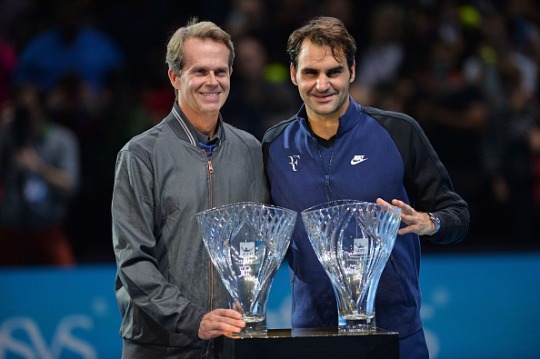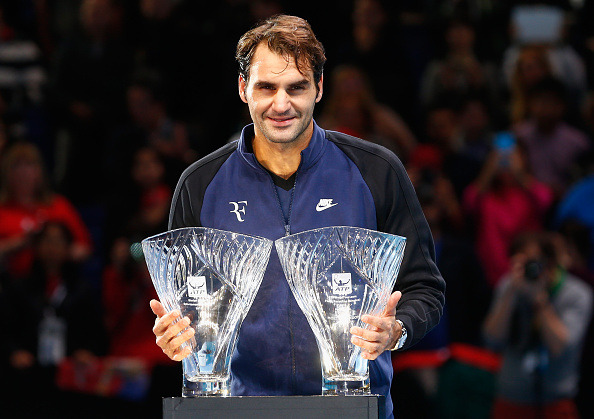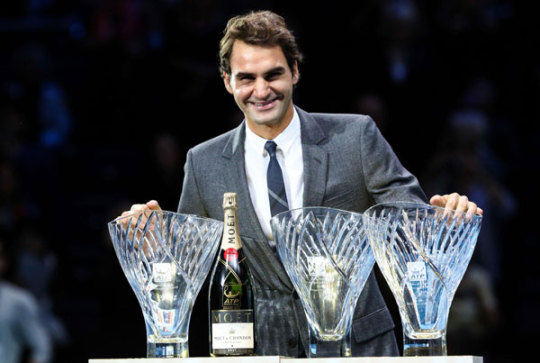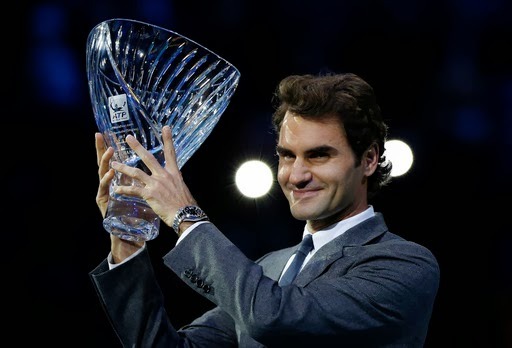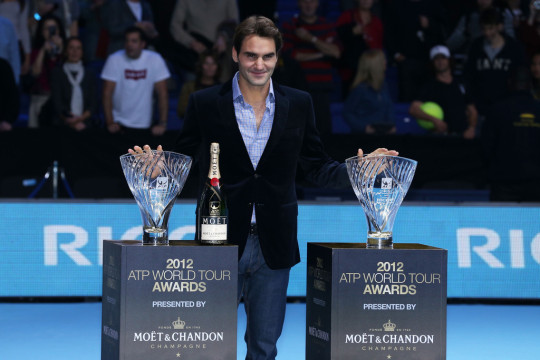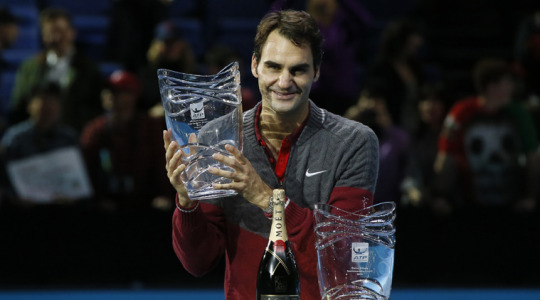At that time, he was ranked No. 3 and deciding whether to play Madrid as he eased his way back into the clay-court season after knee surgery in February.
"You could maybe see that [reaching No. 1] could spark motivation, [and] that would be an extra reason to play Madrid," Federer said. "But right now I think I’m in the part of my season ... at first I need to make sure I’m 100 percent. If it’s better for me to train for a week, I’ll do that over chasing No. 1, which honestly is less important to me."
The Swiss ended up entering Madrid at the last minute, before pulling out soon after with a back injury. He made no such indecisive moves after Wimbledon, choosing to end his season early after falling in the semifinals. His ranking began to slip until he exited the Top 10 for the first time since 2002.
"[My ranking] is not really a priority for me because I think it doesn’t matter if you’re No. 2, No. 3 or No 4—for me, anyway," Federer said in April.
Federer mentioned that being in the Top 8 is important for seeding purposes, but now that’s out of the question, at least for the Australian Open. There’s little chance that Federer imagined he would end up missing Roland Garros—the first major draw he didn’t appear in since 1999—and then the Olympics and the U.S. Open, falling to No. 16 after just seven tournaments and zero titles.
Federer is scheduled to return on January 1 for the Hopman Cup in Perth. There’s no telling what kind of shape—particularly match shape—he’ll be in for the season ahead. A lot has changed while he was away, and Andy Murray is the new king in town.
Even if his 2017 season goes poorly, the 35-year-old has already left his mark with a record 17 Grand Slams over a nearly 19-year career. His rivalries with Novak Djokovic and Rafael Nadal cost him many more majors—he lost to one of them in nine separate major finals— but the Swiss doesn’t look at it that way.
"I truly believe that if they wouldn’t have been around, somebody else would have been around," Federer said. "Or maybe they wouldn’t have pushed me to be so successful. I don’t know how to explain it, but I think I still would have the same amount of titles with or without them."
After Djokovic lost to Murray in the ATP World Tour Finals title match, Boris Becker implied that Djokovic’s year was hindered by the absences of Nadal and Federer. (Injuries forced Nadal out of Roland Garros and Wimbledon, and ended his season in October.)
"He didn't have any opponents anymore," Becker told CNN about his pupil, Djokovic. "His time was with Nadal, with Federer. [Murray] was always the fourth guy. So he lost a little bit of his opponents. Murray is showing something he hasn't shown before."
Becker also said that winning Roland Garros was a "pinnacle" achievement for Djokovic, and afterward he was a “bit off” since “he didn’t know what the next big goal would be.”
While the next big goal should have been obvious (perhaps the calendar-year Slam and/or a medal in Rio), the point about lacking rivals isn’t really that outrageous considering what Federer said.
Still, Murray has done more than his fair share of heavy lifting to earn rival status. In 2016 he won nine titles, including Wimbledon, Rio and the ATP World Tour Finals. While Djokovic leads their head to head 24-11, a closer look shows a 3-2 advantage for the Serb in 2016, compared to 6-1 in 2015.
Djokovic and Murray are sure to develop their rivalry and face off in more major finals in the near future. Federer’s future, meanwhile, is uncertain. But back in April, the Swiss wasn’t thinking about investing in a retirement plan just yet.
"Honestly, I don’t know," Federer said. "I spoke to [Stefan] Edberg. He announced [his retirement] at the beginning of the season and played the entire season … By the end of it, he was just exhausted. I honestly don’t know what it’s going to be for me. I just hope the body’s not going to call it."
baseline.tennis.com

